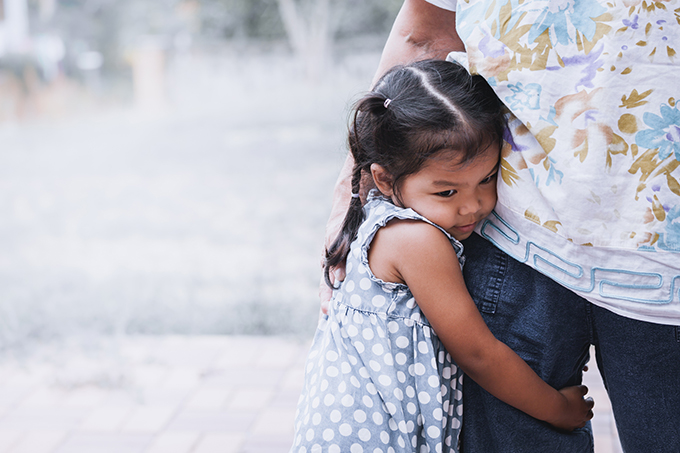
Let’s face it: who doesn’t have anxiety related to the coronavirus pandemic?
Children are flexible by nature. They have an innate ability to just go with the flow. (More adults could stand to hone this skill…myself included.)
For better or for worse, children can adapt to anything.
However, you don’t want your child to learn to adapt the wrong way.
If you just throw your kids into the fire and let them deal with every challenge on their own, they will develop unhealthy coping mechanisms to deal with the stress.
After schools closed at the beginning of the pandemic, children with working parents suddenly found themselves isolated from family members as well as fellow children. As a result, there were reports of children regressing behaviorally. Some previously toilet-trained children required diapers again.
To keep your child on track, they need the right tools to manage their mental health. And they need YOU, the parent, to give them those tools.
Here are 4 ways you can help children manage COVID-19 anxiety.
Compassion
The best thing you can do for your children is hear them. The last thing we want to do during this difficult time is listen to someone else’s problems, but your children only have you as a resource. You need to be there for them, regardless of what is going through YOUR mind.
It can be frustrating, hearing your young children complain and ask you to fix menial things like being able to go to the store or having to wear masks. There are bigger concerns demanding attention, and as adults WE know that. But kids don’t! In this time of great stress, you will (unfortunately) have to take another task upon your shoulders. You need to be extraordinarily patient with them as their world is turned upside down.
Listening to children vent validates them. Then, at the end, you can ask them questions and lead them to do some constructive problem solving on their own.
By hearing them out and guiding them to develop their own solutions, parents can give children the ability to comfort themselves and solve their problems independently.
Plus, kids will walk away from these interactions with a positive mindset going forward. They will know that in times of need, they can turn to you.
Teach Independence Over Time
And knowing that they can turn to you helps to nurture independence. Children gain confidence when they feel secure. Ironically, by meeting your children’s need to rely on and be comforted by you, you actually help them become independent over time.
A secure child is a confident child, and only confident children are brave enough to take on problems by themselves.
Stay Productive
Don’t mistake a strategy prioritizing compassion and patience as a lack of structure. When it comes to dealing with anxiety in children, the best long term strategy is to keep them busy.
This is more than “distracting” children. If you only seek to distract children, you are robbing them of the opportunity to develop useful coping strategies for the future.
Don’t just give your child busy work. Give them meaningful tasks that contribute to the household. Instead of simply TELLING them to do the dishes, ask them for “help” doing the dishes because you are busy with X, Y, and Z, and you could use the help.
If you make your children feel as though they are contributing to the success of your family–the family they love–they will be eager to help out!
Otherwise, you can set up your children with self-improvement tasks. YouthLight.com, for instance, offers a bunch of tools for parents who want to give their children interactive self-enrichment programs they will have fun doing.
Set Realistic Expectations
Prepare your kids as far ahead as you can. You don’t want to stoke their anxiety or doom them to months of dreading the worst, but you don’t want bad news to take them by surprise, either.
The truth is that school will never look the same again. Children can’t expect to be in school for at least another year. And when they do go back, everything will be different.
Everyone should prepare their children for the inevitability that they might not see their friends in person for a while longer.
However, children need their realism tempered with positivity. When you are laying out future plans for children, keep your points brief and always end discussions on a high note. Remind them of something they can look forward to in the near future!
As a sidenote: make sure they have something to look forward to each week. It helps break up the monotony of social distancing from week to week. It also helps distract your children so that time passes more quickly.
